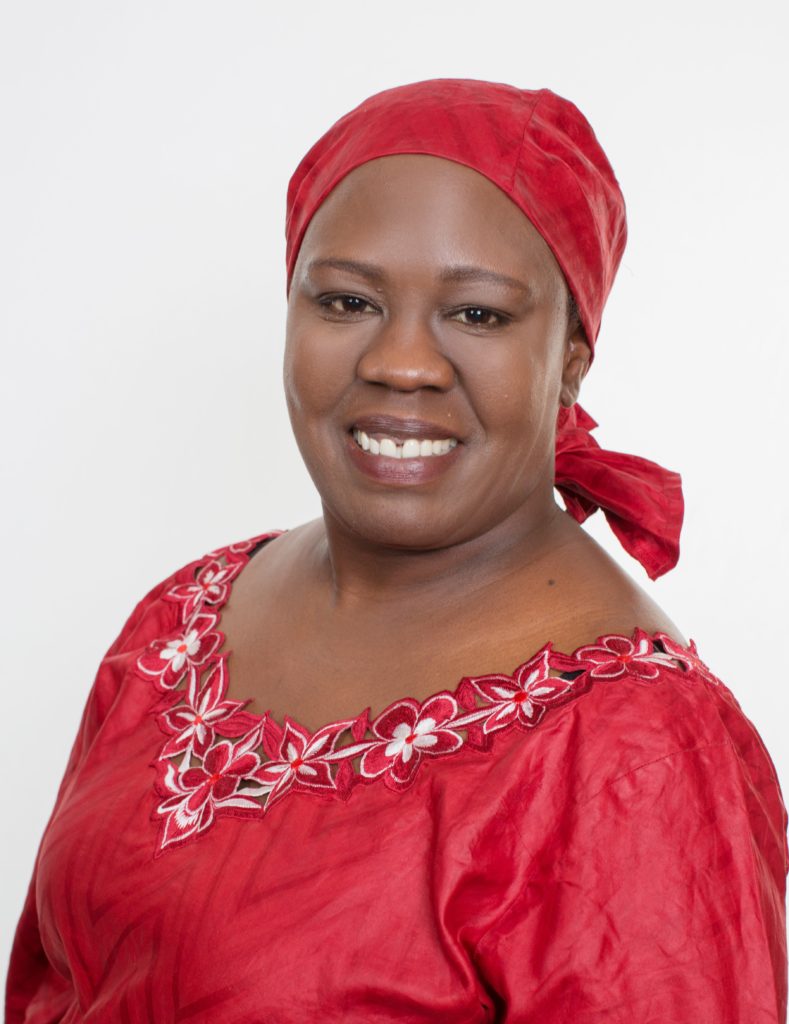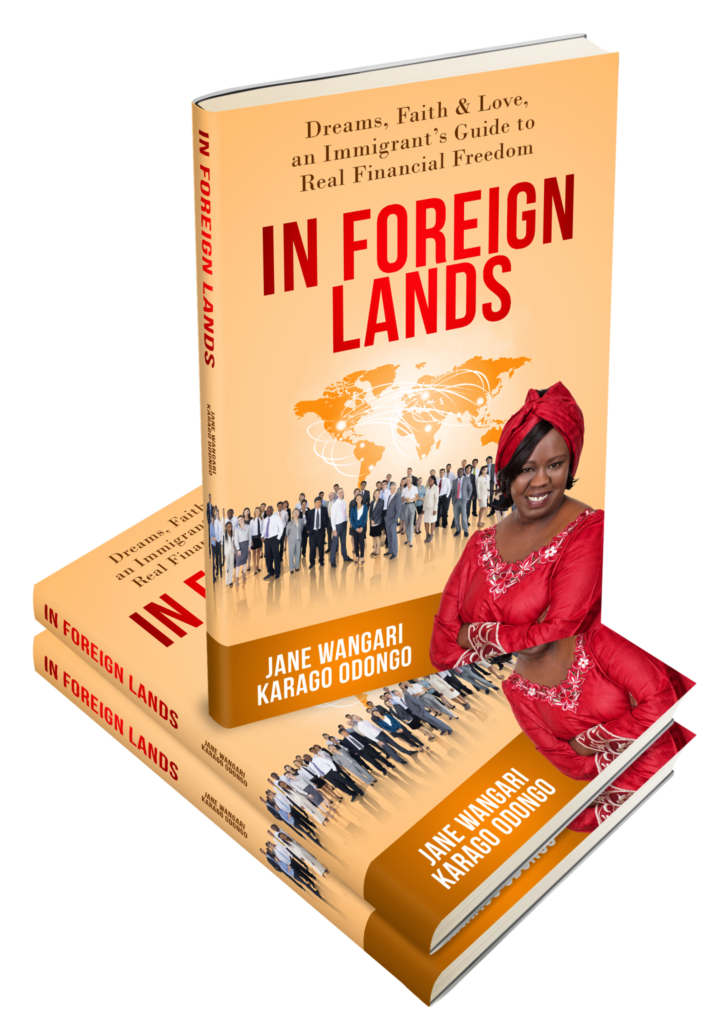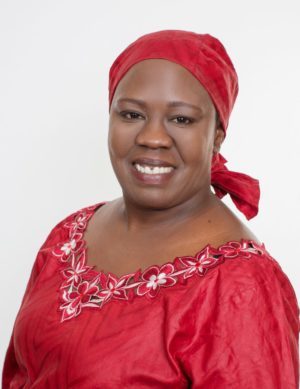

Could you tell me about your childhood? Where were you born? Is there anything about your childhood that stands out for you? Helped form who you are today? Your parents, friends, school?
I am the fifth born in a family of six children. I grew up in a relatively comfortable home environment. We lived on a big farm and my dad was a senior manager in a government corporation. My mom was a farmer growing vegetables for export to the UK. I was born in Tigoni, Kiambu, Kenya, which is about 23 kilometers from the capital city of Kenya, Nairobi. I was a happy and bubbly child, very friendly and helpful to other children. I attended a boarding school from grade four all the way to university. This introduced and exposed to me the world of communal living which helped and made me appreciate living and interacting with people from various backgrounds.
When did you come to Canada, what made you decide on Canada, Ottawa?
I came to Canada in November 2000. My main goal was to give my three daughters a life that would open opportunities for them as women. I moved to Ottawa to work with African, Caribbean, and Black (ACB) population as a community developer and to join my daughter who was in 3rd year of her university.
What is your educational background?
I hold a Master’s degree in Immigration and Settlement Studies from Waterloo, a Bachelor’s degree in Independent Studies and Women Studies from Waterloo, a Bachelor of Education degree and a Higher diploma in French from Kenya, and additional diplomas in Business Administration. I am also a licensed Financial Advisor.
Can you describe your full-time job?
I am a community developer and a counselor working with women and immigrant women. I teach Swahili to Canadian diplomats going to work in East Africa. I’m also involved in the research of African, Caribbean, and Black issues at the University of Ottawa.
Could you describe the volunteer positions you’ve held in the past and the challenges you faced in the course of your community engagement?
I have been a volunteer promoting health for the African Caribbean Community (ACB) in Southwestern Ontario and the Ottawa region. I also volunteered with immigrants as an interpreter for immigrant women, as well as conducted research on HIV/AIDS. The challenges were mainly getting more immigrants to participate in research and the services we were offering.
You have recently published a book: In Foreign Lands. Tell us about the book. What motivated you to write it in the first place?
This book is about how to be successful as an immigrant in the Western world. After working with immigrants and newcomers for over 15 years, I found that there was a need to share specific information on how to be successful.
The information provided by settlement agencies is quite general and it is therefore important for the newcomers to hear firsthand about the experiences that other immigrants went through and how they managed to overcome the challenges associated with immigrating and adapting to a new country and how they succeeded. I openly tell my own story and share stories from twelve other women who migrated to Canada.
What is the biggest challenge facing people of African descent planning to immigrate to Canada?
Lack of information, insufficient finances, visa restrictions due to conditions imposed by visa-issuing countries such as highly skilled applicants and wealthy investors.
Are prospective immigrants from Africa treated differently than those from Europe for instance?
Looking at the history of immigration in Canada, immigrants from African countries were only invited to apply for immigration in 1982 when there were fewer people from Europe were interested in immigrating. It goes without saying that Black immigrants are always at the bottom of the barrel in every aspect of life in Western countries. For instance, it is easier for a European to get a job compared to an African, even with better qualifications. A Black person is five times more likely to be stopped by the police, arrested, and convicted than a European in Canada.
What is the biggest challenge to them once they arrive in this country?
Integration into the new society poses a big challenge because of factors such as language barrier, low self-esteem, self-doubt, and lack of confidence when they have negative encounters with white people. It takes long before they can rebuild their confidence. When immigrants arrive in this country, it is said that they are stripped of everything they are, and what they become depends on who guides them when they arrive.
What has been your biggest achievement and what was your biggest challenge? In your work, family life, volunteer work?
At several of my places of work, I have found myself to be the only Black employee and I sometimes feel like an outsider, or like I don’t belong, especially when I have to keep explaining who I am and what I am all about. My biggest achievement is raising three successful professional girls. In volunteer work, one of the biggest achievements has been developing culturally appropriate educational material. I wrote and directed a short movie on HIV/AIDS prevention; I have spearheaded the translation of the HIV/AIDS pamphlets into African languages and designed training activities centered around music, dance, drama, and food. This is a good way of reaching and engaging the Black community.
How do you see the relationship between Black men and women in Ottawa and in Canada in general? There are some Black women who claim they are not respected by Black men, that Black men give more respect to white women than themselves? Do you support this point of view?
I do not have any experience in that. In general, Africans have been socialized to treat visitors and strangers well. In addition, due to being brainwashed, Africans in general still regard White people as superior to them.
There appears to be a divide on one level between Black francophone and Anglophone communities, and on another level between people from continental Africa and those from the Caribbean. These discrete groups often operate separately and rarely hold events together or collaborate on joint projects to their mutual benefit? Do you agree with this perception and if so what can be done to increase collaboration among our various community groups?
These groups are separated because of specific differences such as language and culture. Each group is unique just like white people from different European countries have different cultures. We should not be defined only by the colour of our skin; we celebrate our different identities including spirituality. We are all Canadians at the end of the day, and we should celebrate our uniqueness. There are many Black organizations that work across the country and bring us together as a community.
Looking at Ottawa’s Black community, what do you see as our biggest challenges? Crime, unemployment, school dropouts, other? How do we overcome them?
I believe that the Black community is not overrepresented in school dropouts. They are underrepresented in senior management positions that they qualify for.
If there is over-representation in crime among Black people, it stems from racial profiling by the police; it is not because Black people commit more crimes than their white counterparts. It is important to keep advocating for ourselves and encourage the young generation of Black immigrants to claim their rights as citizens of Canada.
In the years since you’ve been in Canada, have you seen the situation of Blacks change for the better: more access to jobs, social inclusion etc.
Yes. There is more visibility of Black people providing services in government offices, educational institutions, healthcare, police service, and the media among other industries.
Finally, do you have a message for readers of Black Ottawa Scene?
Black people should hold their heads high and claim their place in Canada. Some chose to immigrate here, and others were forced by circumstances to settle here. Keep up our Black pride and carry ourselves with a strong sense of belonging. We are here to stay. We should attain skills for work and entrepreneurship. Apply for higher positions in employment and encourage other Blacks to join you so that you are not lonely at the top.
I would encourage the readers of Black Ottawa Scene to order a copy of my book ‘In Foreign Lands’ and follow the guide to achieve success and prosper.


This is very a timely and valuable resource to have. Jane has packaged information in an easy read book for guidance to millions of migrants that find themselves in foreign lands. With the global village phenomenon, this is a must read. Thank you Jane for this resource!
Brave and straight to the point answers